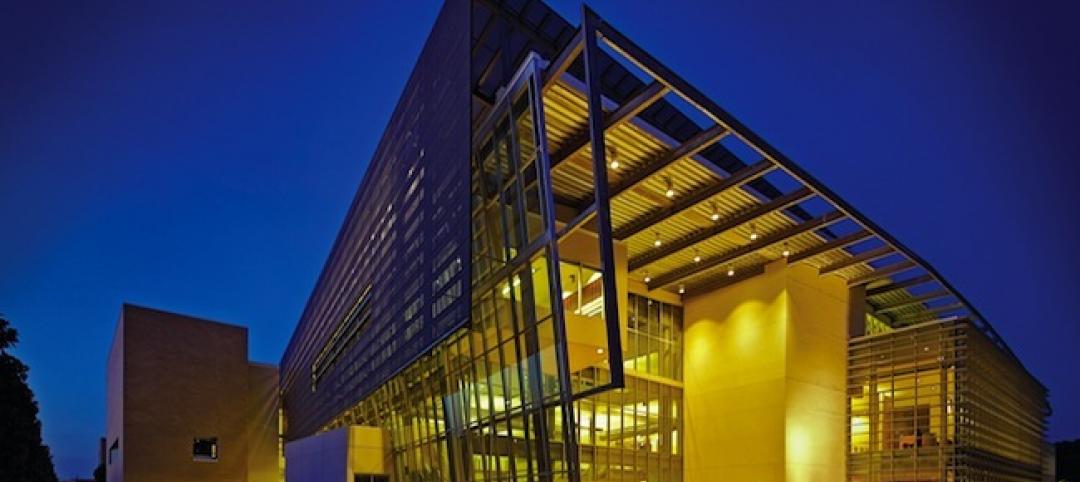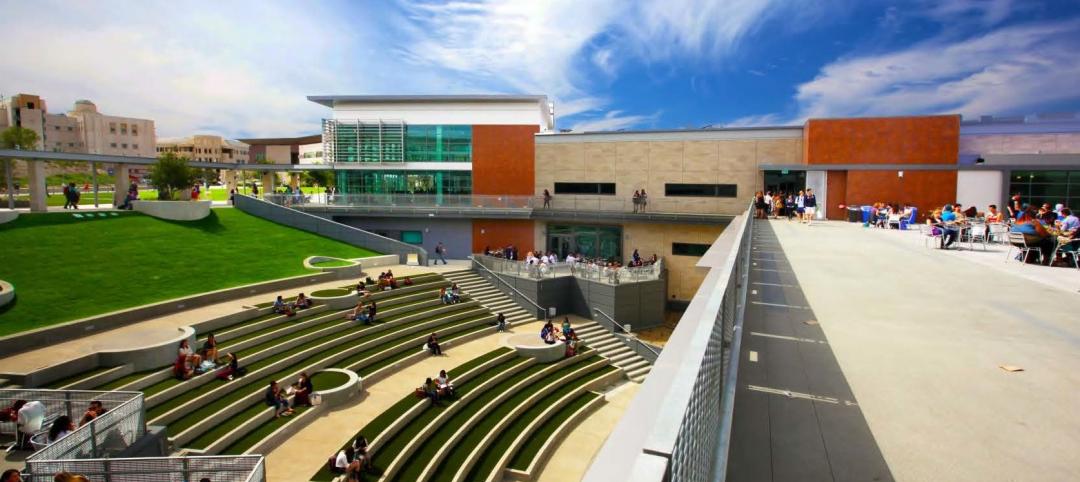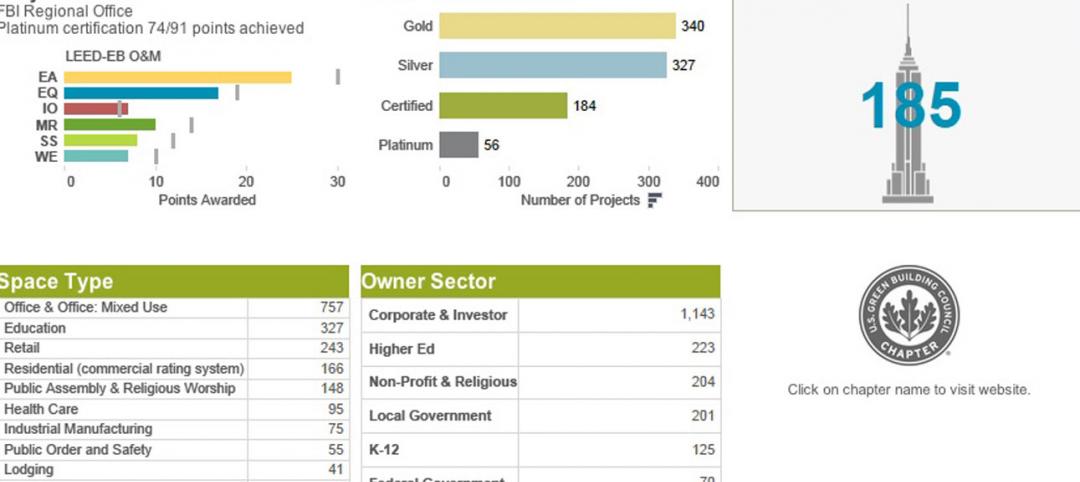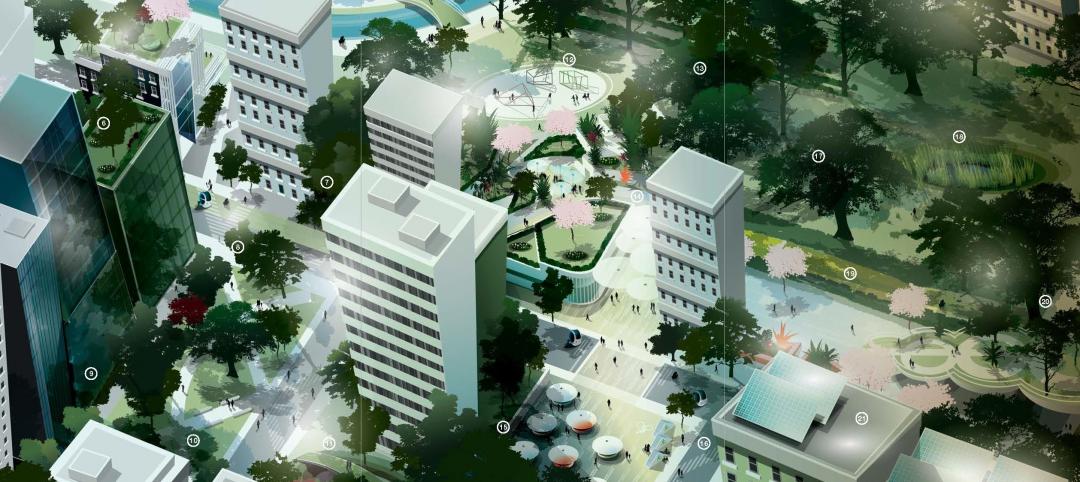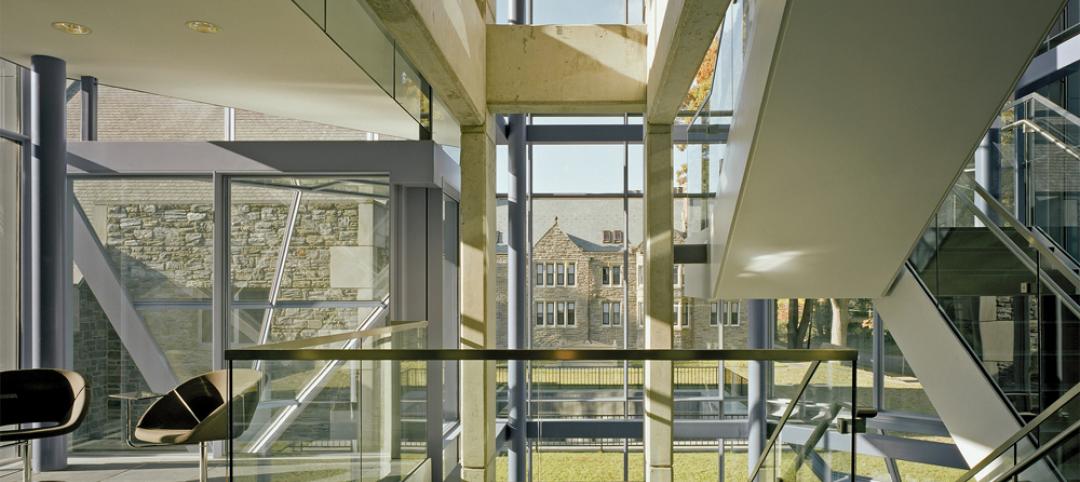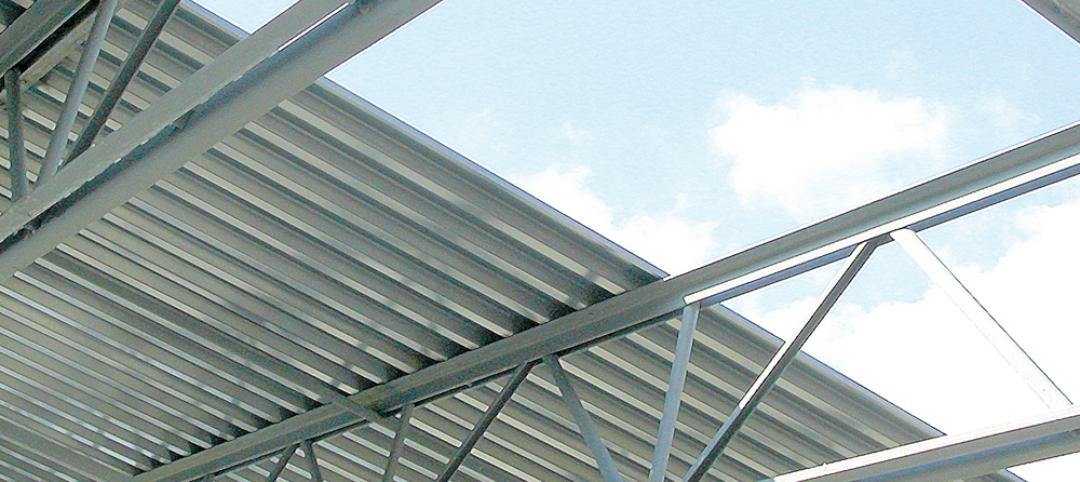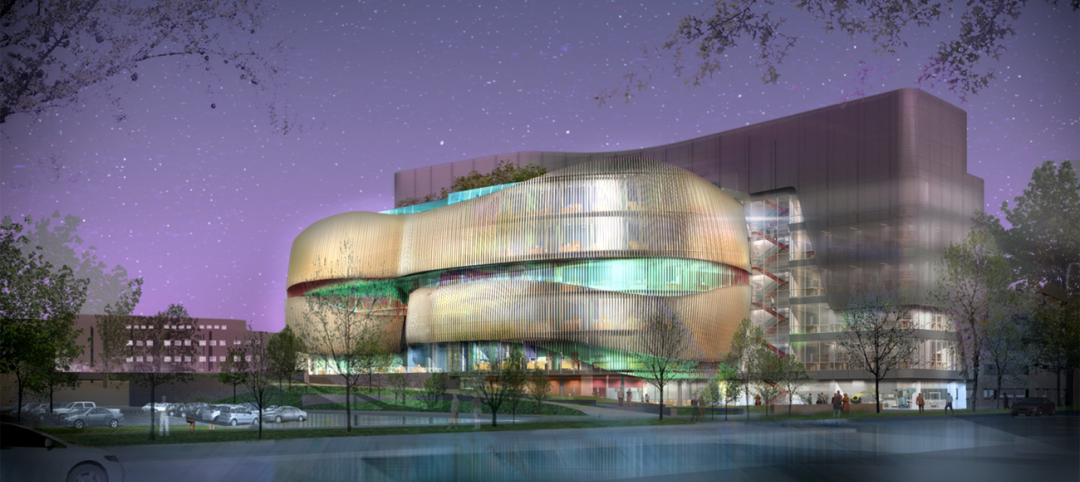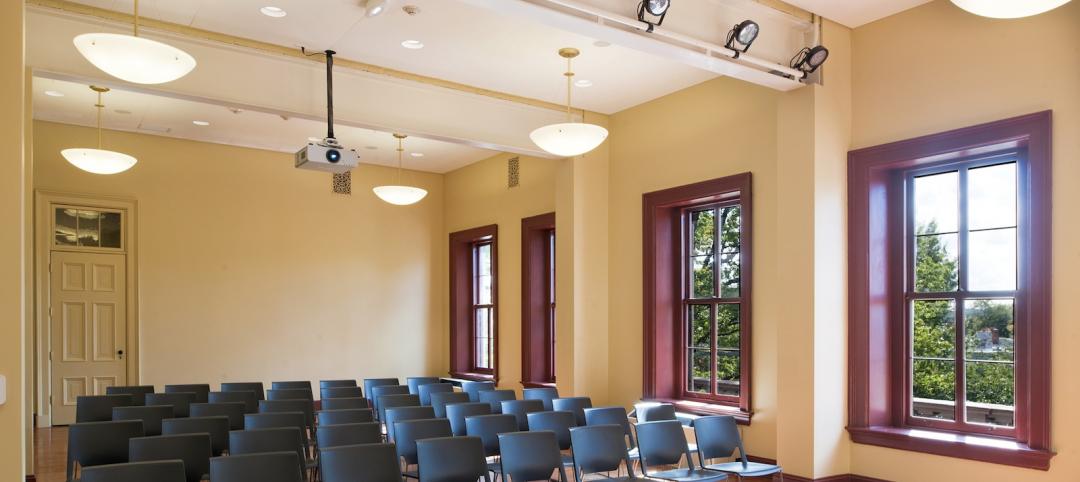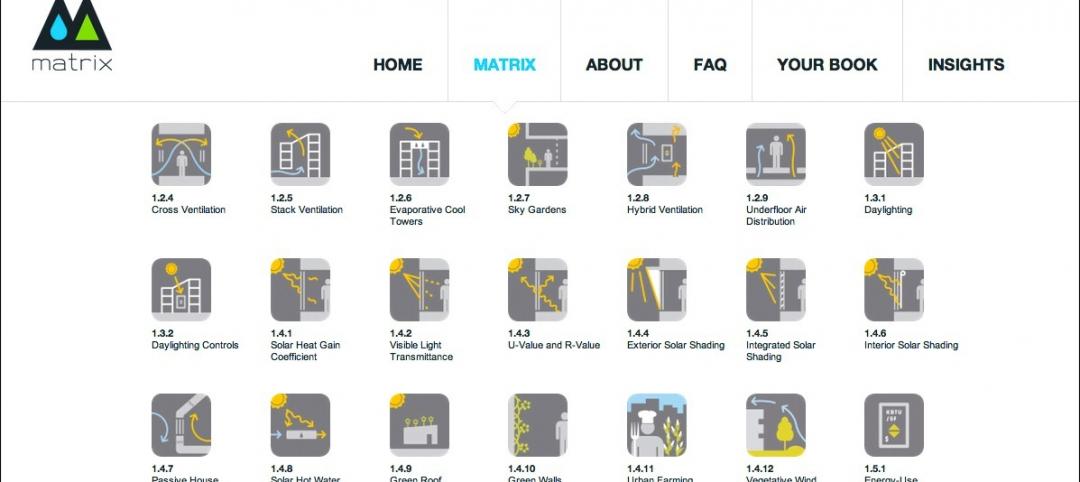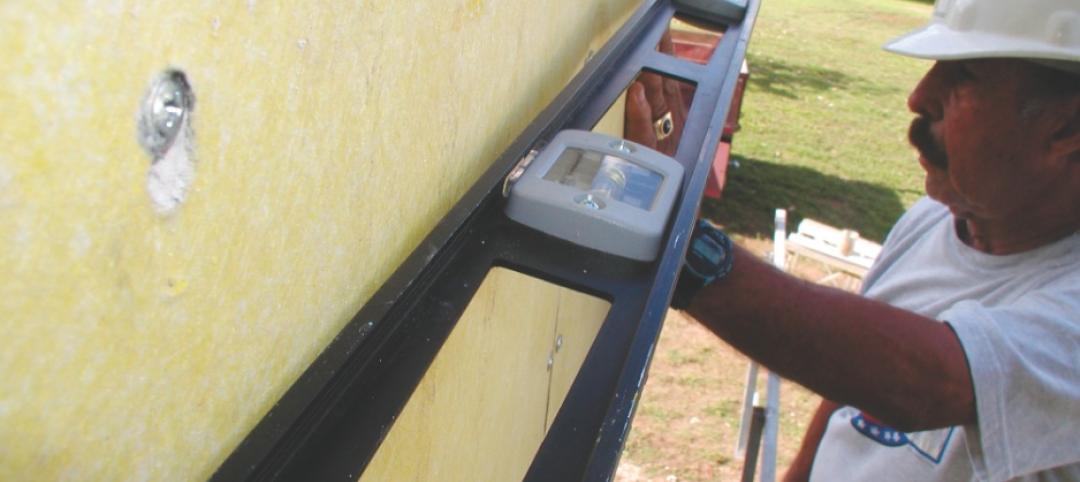When Troy Hall was constructed in 1921, it was used as a dairy building that housed the Washington State University (WSU) Creamery, Ferdinand’s Ice Cream Shoppe, and chemistry classes. After closing its doors in 2010, Troy Hall retired its cheese equipment and decided to focus on the chemistry. Roughly seven years later, Troy Hall reopened as the new home of the Department of Chemistry and School of the Environment.
The Perkins+Will-designed building added almost 15,000 sf of new space to the north of the building, bringing the total square footage of the four-story building up to 50,000. The new space is used for private and open offices and meeting spaces of various sizes.
Photo courtesy Perkins+Will.
An oversized, naturally lit staircase connects the new space with the rest of the 35,000-sf building. Collaborative and informal meeting spaces are located near the new stairwell on each floor. These new spaces are meant to form the new “academic heart” of Troy Hall. Teaching and research labs and flexible spaces that can be used for a variety of uses fill out the rest of the building.
Due to the historic nature of the building, Perkins+Will preserved as much of the historic character as possible. All four walls from the original 1920s façade and the terra cotta from the original entrance were deconstructed, restored, and relocated to the building’s new front door.
Photo courtesy Perkins+Will.
In addition to Perkins+Will, the design-build team also comprised Lydig Construction. The rest of the build team was composed of Parametric, Inc. (CE), Coughlin Porter Lundeen (SE), PAE Engineers (MEP), and Swift Company (landscape architect).
Photo courtesy of Perkins+Will.
Photo courtesy of Perkins+Will.
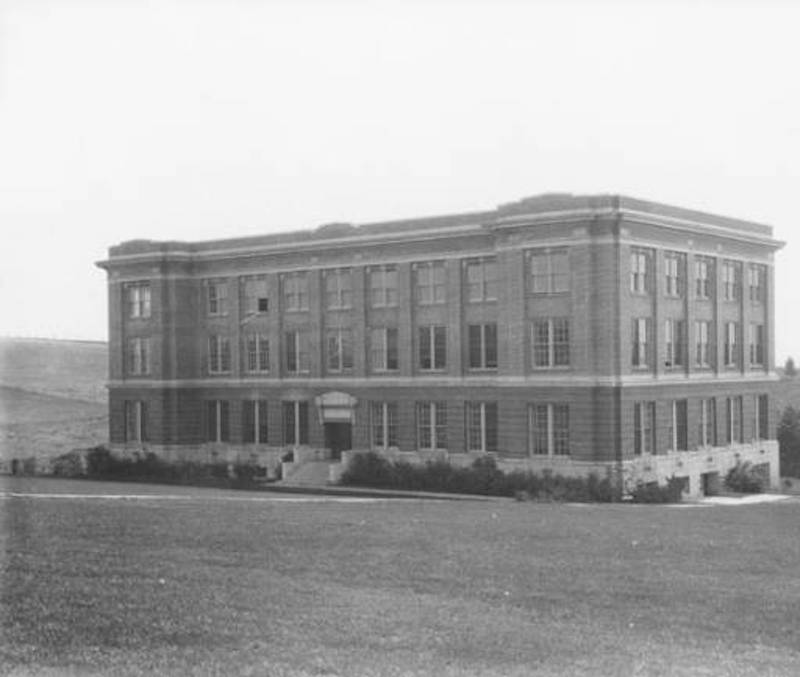 Photo: PC 70 Hutchison Studio Photographs of W.S.U.
Photo: PC 70 Hutchison Studio Photographs of W.S.U.
Related Stories
| May 10, 2014
How your firm can gain an edge on university projects
Top administrators from five major universities describe how they are optimizing value on capital expenditures, financing, and design trends—and how their AEC partners can better serve them and other academic clients.
| May 1, 2014
First look: Cal State San Marcos's posh student union complex
The new 89,000-sf University Student Union at CSUSM features a massive, open-air amphitheater, student activity center with a game lounge, rooftop garden and patio, and ballroom space.
| Apr 29, 2014
USGBC launches real-time green building data dashboard
The online data visualization resource highlights green building data for each state and Washington, D.C.
Smart Buildings | Apr 28, 2014
Cities Alive: Arup report examines latest trends in urban green spaces
From vertical farming to glowing trees (yes, glowing trees), Arup engineers imagine the future of green infrastructure in cities across the world.
| Apr 16, 2014
Upgrading windows: repair, refurbish, or retrofit [AIA course]
Building Teams must focus on a number of key decisions in order to arrive at the optimal solution: repair the windows in place, remove and refurbish them, or opt for full replacement.
| Apr 9, 2014
Steel decks: 11 tips for their proper use | BD+C
Building Teams have been using steel decks with proven success for 75 years. Building Design+Construction consulted with technical experts from the Steel Deck Institute and the deck manufacturing industry for their advice on how best to use steel decking.
| Apr 8, 2014
Science, engineering find common ground on the Northeastern University campus [slideshow]
The new Interdisciplinary Science and Engineering Building is designed to maximize potential of serendipitous meetings between researchers.
| Apr 2, 2014
8 tips for avoiding thermal bridges in window applications
Aligning thermal breaks and applying air barriers are among the top design and installation tricks recommended by building enclosure experts.
| Mar 26, 2014
Callison launches sustainable design tool with 84 proven strategies
Hybrid ventilation, nighttime cooling, and fuel cell technology are among the dozens of sustainable design techniques profiled by Callison on its new website, Matrix.Callison.com.
| Mar 20, 2014
Common EIFS failures, and how to prevent them
Poor workmanship, impact damage, building movement, and incompatible or unsound substrate are among the major culprits of EIFS problems.


